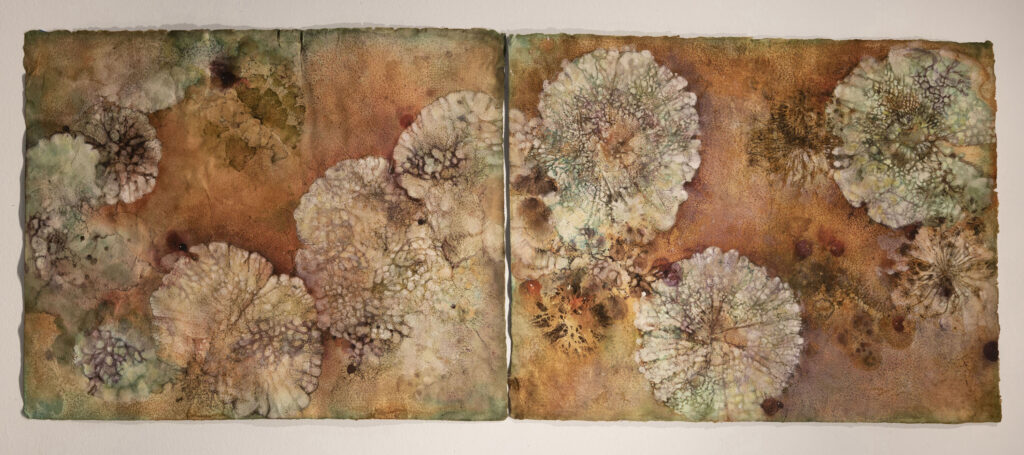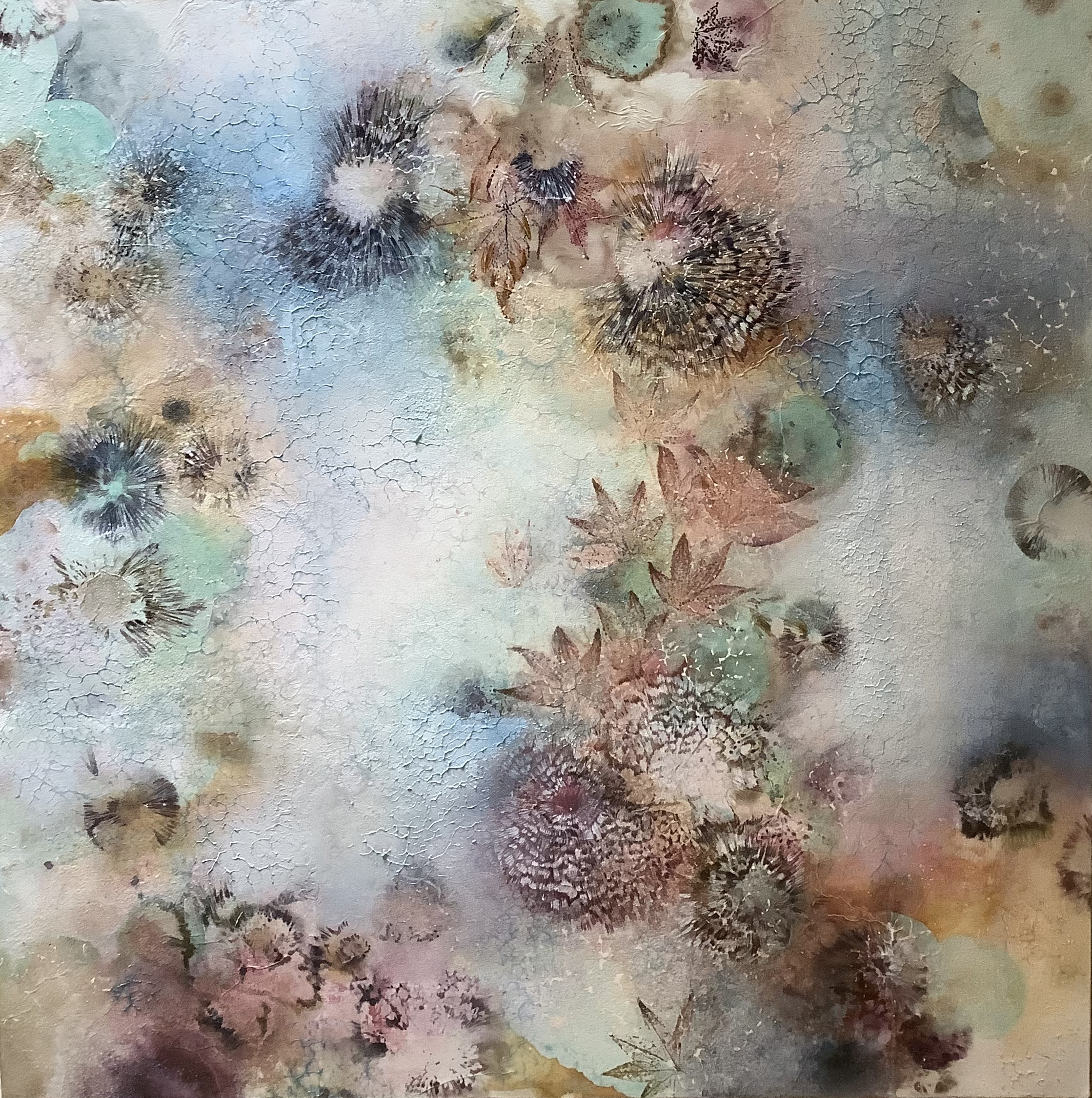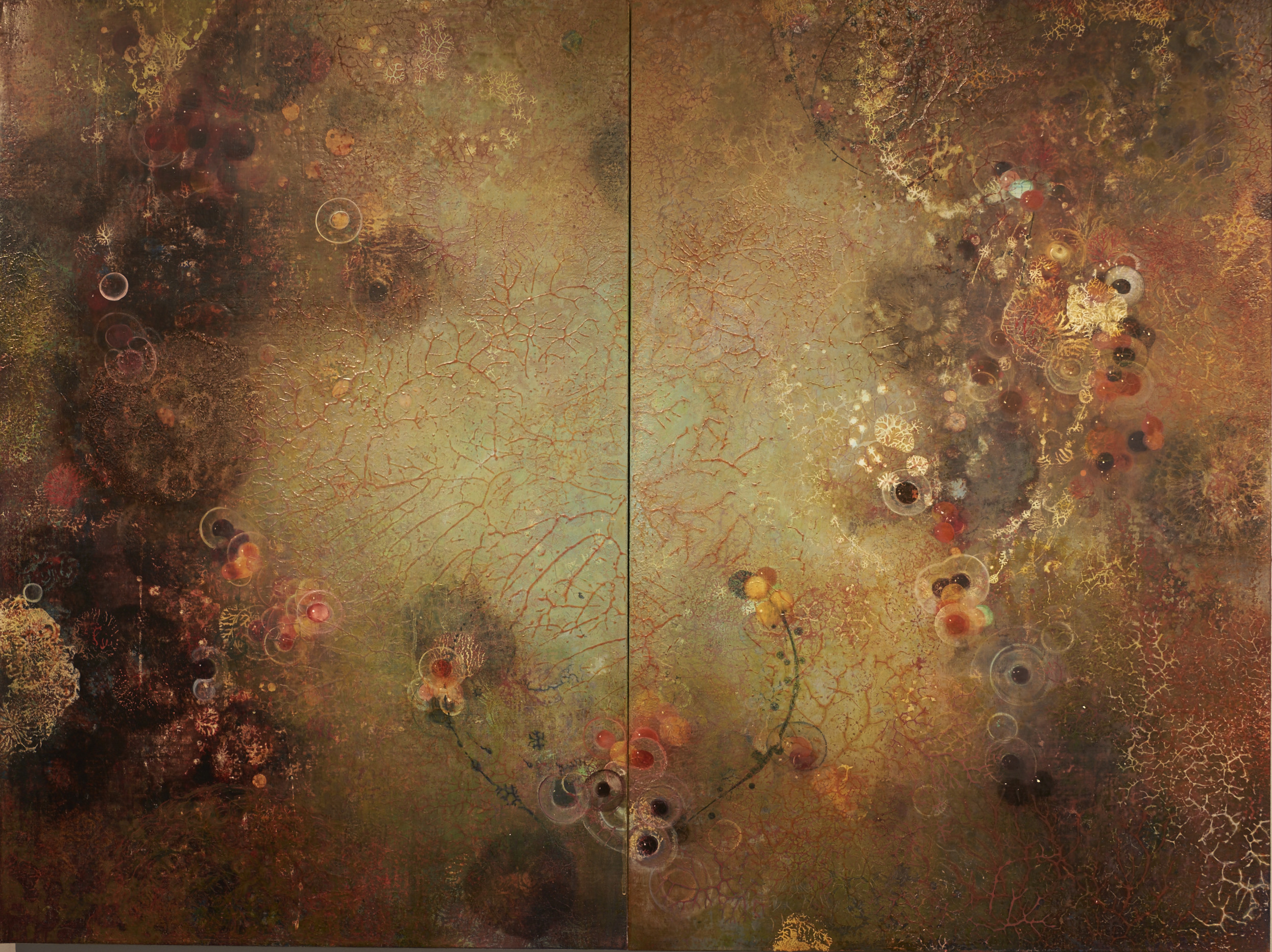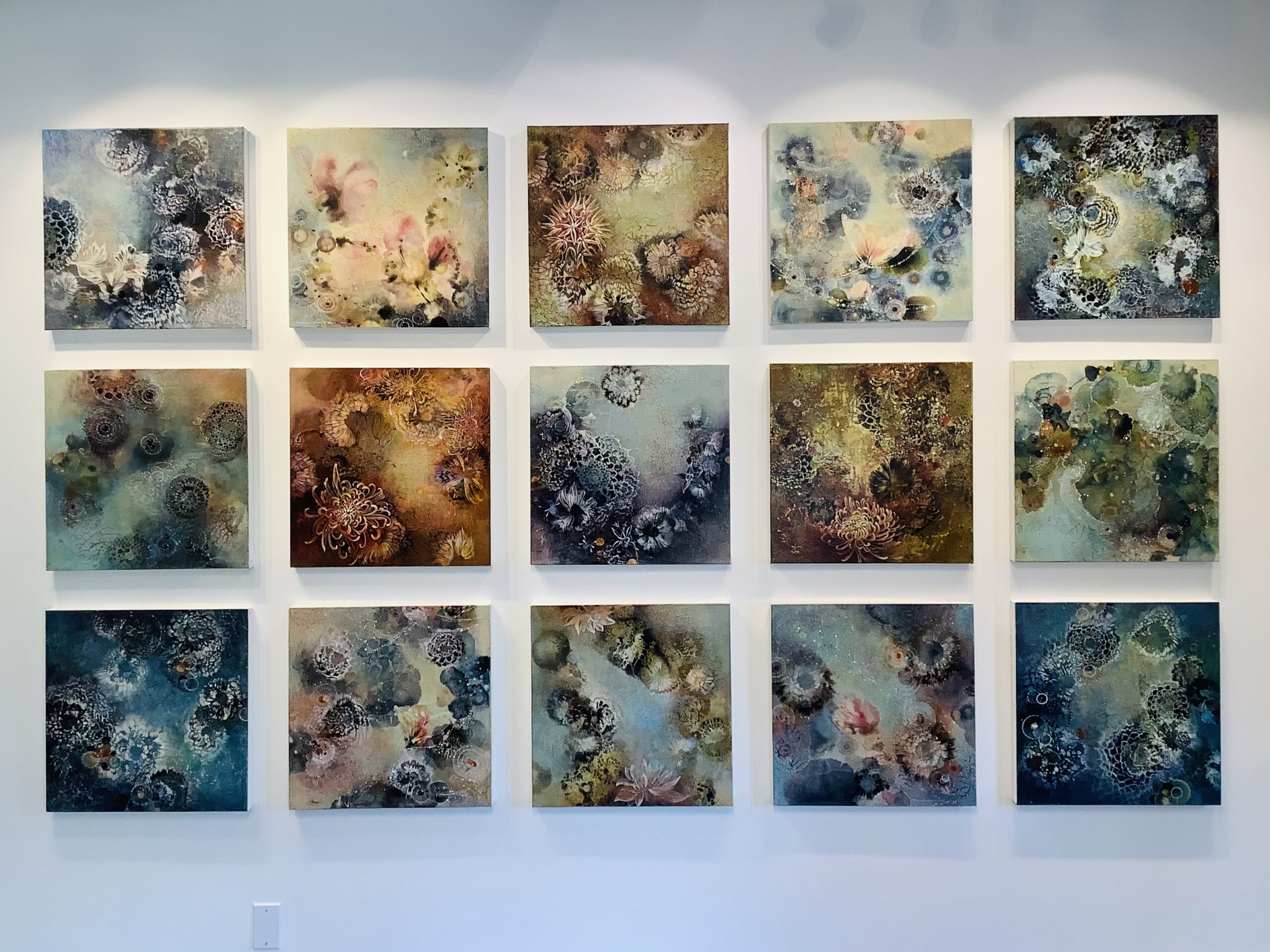
“My art is about exploring the unknown,” says painter Marlana Stoddard Hayes. “How do we maintain our sense of optimism through indeterminacy? Our world has some very dark spaces in it, and the throughline in my work is learning to navigate through darkness.” Stoddard attributes this quest to her having been adopted as an infant and going through adolescence without knowing her biological parents. “At two or three years old, I started drawing on the walls of the family house, and my energy got ahead of my mother,” she says. “She would clean the wall, and a drawing would appear again. I just couldn’t stop.” Stoddard eventually went on to study at the Kansas City Art Institute, where she cites calligrapher Carl Kurtz and lithographer Bill McKim as two of her biggest influences.
Stoddard creates pigments from plants in her garden, mixing them with oxides and salts to create textured whorls on Japanese mulberry paper. These paints change color over time, “constantly evolving,” she says. “They’re alive, and you can see the movement of water. You don’t have any control over it. And I like seeing that, too — there are aspects of our world that we cannot control.” Stoddard is no stranger to the twists of fate: for the past 14 years, she has battled leiomyosarcoma, a rare form of muscle cancer. One of her pieces, Darmera Pertalta, addresses the turmoil of daily chemotherapy treatments, the painted blooms mirroring the shape of Petri dish–grown organisms that eventually become cancer-treating drugs. Living with the unknown has also taught Stoddard about hope—and how to grapple with an uncertain future. “I’ve learned that my body is exceedingly strong,” she says. “I’m just thankful. And my artwork helps me to cope with going through this; you’ve got to use your creativity and your own mind to keep your body going.”




